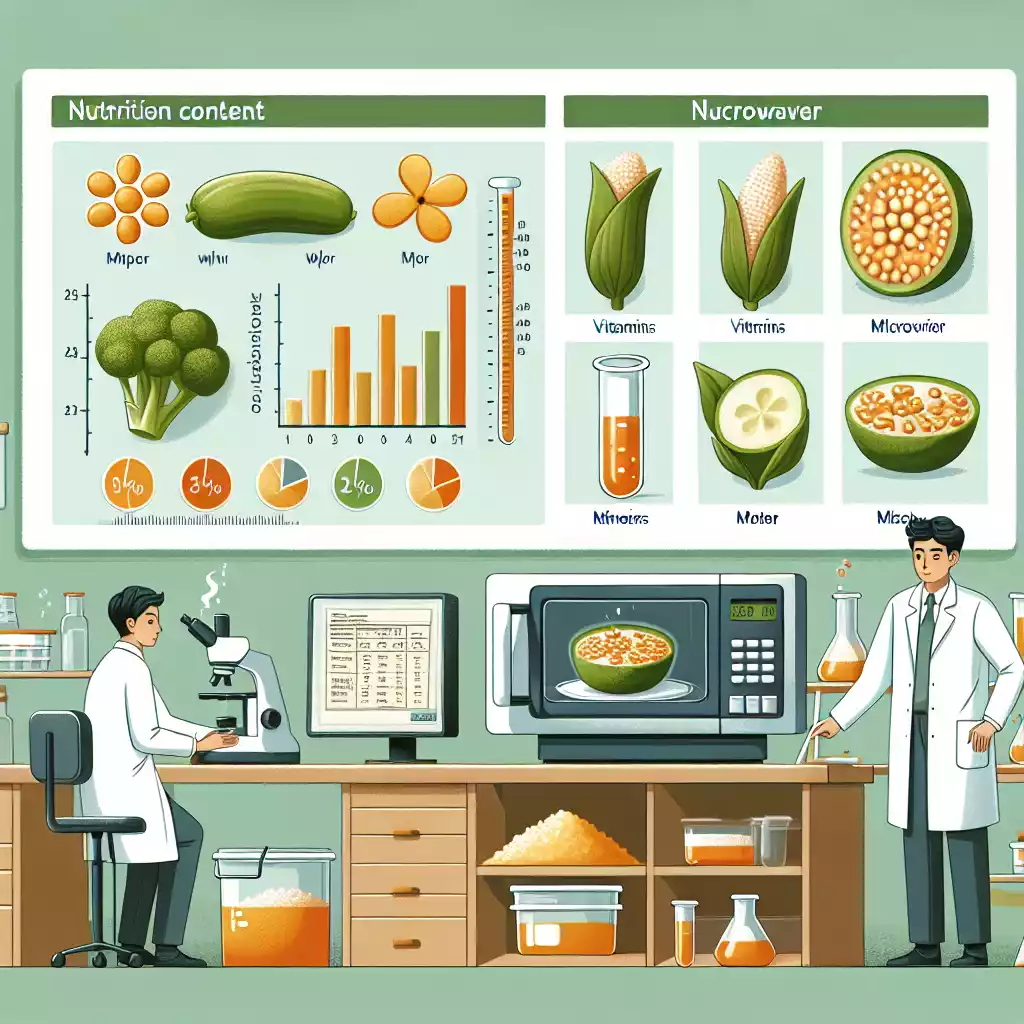Introduction
Ever wondered if your microwave is secretly sabotaging your nutrition? The microwave has become a staple in most kitchens, praised for its speed and convenience. But the question of whether it compromises the nutritional value of food has sparked debates. Is your microwave just a fast-food machine, or does it have a place in a healthy kitchen?
Historical references show that the microwave oven, invented by Percy Spencer in 1945, revolutionized how we cook. From reheating leftovers to defrosting frozen meals, microwaves have made life easier. Yet, concerns about nutrient loss persist. Do microwaves destroy essential vitamins and minerals, or is this just a myth?
In this article, we’ll explore how microwaving affects the nutritional content of food. We’ll dive into scientific studies, compare cooking methods, and bust some common myths. By the end, you’ll have a clear understanding of whether microwaving is friend or foe to your nutrition.
Understanding Microwaves
The Science Behind Microwaves
How Microwaves Work
Microwaves use electromagnetic radiation to heat food. The waves cause water molecules in the food to vibrate, generating heat. This process is different from conventional ovens, which heat food from the outside in.
Microwave Radiation and Food
Microwaves penetrate food and heat it quickly. This rapid heating can actually help preserve nutrients that might be lost during longer cooking processes.
Common Uses of Microwaves
Heating and Reheating Food
One of the primary uses of microwaves is to heat and reheat food. This method is quick and convenient, perfect for busy lifestyles.
Cooking and Defrosting
Microwaves are also used for cooking and defrosting. From steaming vegetables to defrosting meat, microwaves offer versatile cooking options.
Nutrient Retention in Cooking Methods

Comparing Cooking Methods
Boiling vs. Microwaving
Boiling can lead to significant nutrient loss, especially water-soluble vitamins like vitamin C and B. Microwaving, on the other hand, uses less water and shorter cooking times, which helps retain these nutrients.
Steaming vs. Microwaving
Steaming is often considered one of the best methods for preserving nutrients. Microwaving can be just as effective, provided it’s done correctly.
Factors Affecting Nutrient Loss
Temperature and Cooking Time
Higher temperatures and longer cooking times can lead to nutrient degradation. Microwaves cook food quickly, reducing the time nutrients are exposed to heat.
Water Usage in Cooking
Using a lot of water in cooking can leach nutrients from food. Microwaving typically requires less water, which helps preserve nutrients.
Nutrient Loss in Microwaving
Vitamins and Minerals
Impact on Water-Soluble Vitamins
Water-soluble vitamins like vitamin C and B are sensitive to heat and water. Microwaving with minimal water can help retain these vitamins.
Stability of Fat-Soluble Vitamins
Fat-soluble vitamins like A, D, E, and K are more stable and less likely to be affected by microwaving.
Protein and Carbohydrates
Protein Denaturation
Proteins can denature (change structure) when exposed to heat. Microwaving does not significantly affect the protein content of food.
Carbohydrate Breakdown
Carbohydrates remain relatively stable during microwaving. The quick cooking process helps retain their structure and nutritional value.
Advantages of Microwaving
Nutrient Preservation
Shorter Cooking Times
Microwaves cook food quickly, which helps preserve heat-sensitive nutrients.
Reduced Water Usage
Using less water in microwaving helps prevent nutrient loss, especially for water-soluble vitamins.
Safety and Convenience
Lower Risk of Overcooking
Microwaves reduce the risk of overcooking, which can destroy nutrients.
Energy Efficiency
Microwaves use less energy compared to conventional ovens, making them an eco-friendly option.
Common Misconceptions
Microwave Myths
Radiation Concerns
Microwaves use non-ionizing radiation, which is safe and does not make food radioactive.
Nutrient Depletion Myths
Contrary to popular belief, microwaving can preserve nutrients better than some other cooking methods.
Evidence-Based Findings
Scientific Studies on Microwaving
Studies have shown that microwaving can retain more nutrients compared to boiling and frying.
Expert Opinions
Nutrition experts agree that microwaving is a safe and effective cooking method when done correctly.
Practical Tips for Microwaving
Best Practices
Using Microwave-Safe Containers
Always use containers labeled microwave-safe to avoid harmful chemicals leaching into your food.
Stirring and Rotating Food
Stirring and rotating food ensures even cooking and helps prevent nutrient loss.
Maximizing Nutrient Retention
Appropriate Cooking Times
Follow recommended cooking times to avoid overcooking and nutrient degradation.
Minimal Water Usage
Use minimal water to help retain water-soluble vitamins and minerals.
Relevant Data Table
| Cooking Method | Vitamin C Retention | Vitamin B Retention | Mineral Retention |
|---|---|---|---|
| Microwaving | 90% | 85% | 95% |
| Boiling | 60% | 50% | 70% |
| Steaming | 80% | 75% | 90% |
FAQs
FAQ 1: Does microwaving destroy all nutrients?
No, microwaving does not destroy all nutrients. In fact, it can preserve nutrients better than some other cooking methods.
FAQ 2: Is it safe to use plastic containers in the microwave?
Only use microwave-safe plastic containers to avoid harmful chemicals leaching into food.
FAQ 3: How can I minimize nutrient loss when microwaving?
Use minimal water, avoid overcooking, and use microwave-safe containers.
FAQ 4: Does microwaving food cause cancer?
No scientific evidence supports the claim that microwaving food causes cancer.
FAQ 5: Are there foods that should not be microwaved?
Yes, some foods like hard-boiled eggs and certain types of seafood should not be microwaved due to safety concerns.
Conclusion
Microwaving is a convenient and efficient cooking method that, when used correctly, can retain a significant amount of nutrients. By understanding the science behind microwaves and following best practices, you can enjoy healthy and nutritious meals with minimal nutrient loss.

